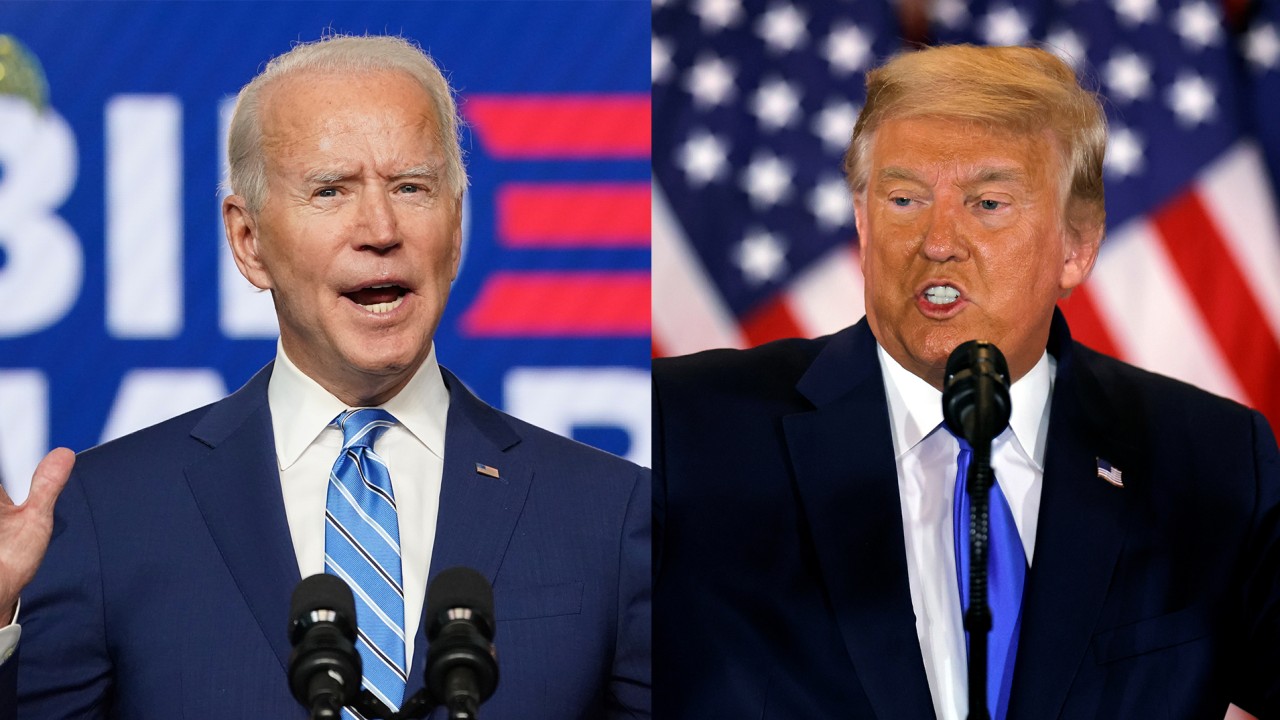
Trump vs Biden goes down to the wire, but we’ve been here before with US elections
- Counting continues in key swing states after the president prematurely claimed he had already won the race
- From Rutherford B. Hayes to George W. Bush, America has a history of close polls

08:48
US presidential election 2020: legal challenges as momentum shifts from Trump to Biden
This is not the first time that results have been unclear after polls closed on election day.
The infamous race between former president George W. Bush and former vice-president Al Gore on November 7, 2000 dragged on for more than a month because of confusion over the votes in Florida. Gore had initially privately conceded to Bush when it seemed he had lost the electoral votes in the southern state, but the final vote count found that the margin was less than 2,000.
A recount was ordered under Florida’s state laws, but legal battles delayed the process until it reached all the way to the Supreme Court, which ruled 5-4 in one of its most controversial decisions in history to stop the recount. The ruling on December 12 handed Bush, a Republican, the electoral votes he needed to win Florida and ultimately the presidency.
Three ways Joe Biden undermined Donald Trump in the Midwest
That was not even the longest delay for American voters, who had to wait nearly five months in 1876 to find out whether the winner was Republican Rutherford B. Hayes or Democrat Samuel J. Tilden.
While Tilden had secured the popular vote in the election, both sides claimed the electoral votes in four key states: Florida, Louisiana, Oregon and South Carolina.
Congress convened an Electoral Commission in January 1877 to sort out the dispute, and ruled 8-7 that Hayes would be awarded all four of the states. Even after Democrats sought to delay the counting of the electoral votes, the then-speaker of the House rejected the delays and allowed Hayes to secure the presidency just days before the inauguration.
In other cases, the 1884 election between Democrat Grover Cleveland and Republican James Blaine took more than a week to be finalised. And in 1916, it took more than two weeks before Democrat Woodrow Wilson was officially declared the winner over Republican Charles Evan Hughes.

